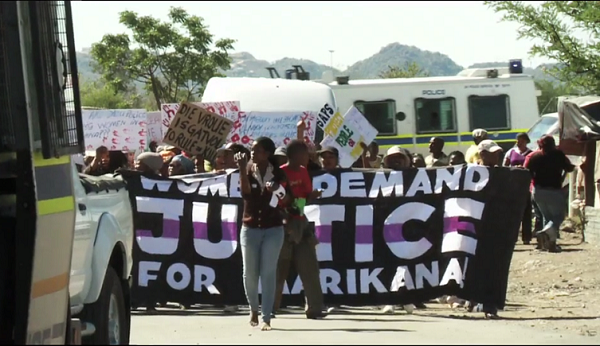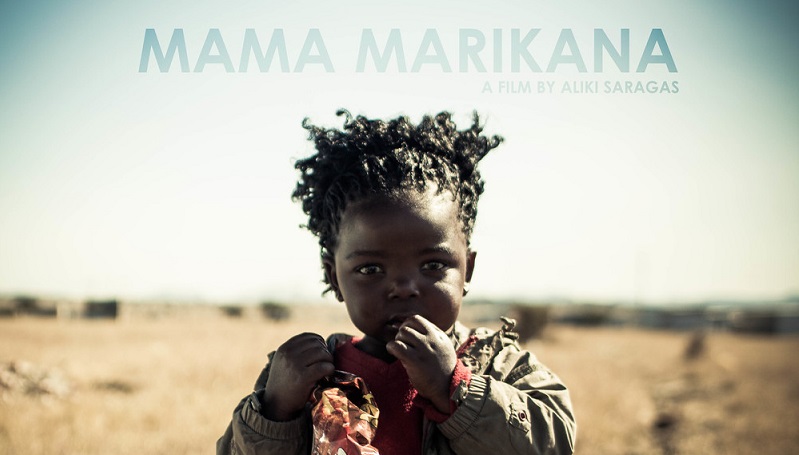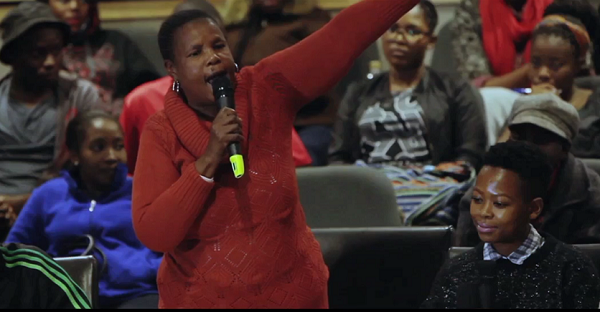In August 2012, 44 men including two policemen, two security guards and 32 miners, were killed during what’s now known as the Marikana massacre. While an enquiry into the massacre seeks to in answers to questions around what exactly happened that day, the women living in Marikana, almost forgotten by society, struggle to pick up the pieces and move on with life. Mama Marikana is a documentary that tells the story of these women.
Mama Marikana features the stories of five women: Primrose Nokulunga Sonti, Thumeka Magwangqana, Evelyn Seipati Mmeka, Zameka Nungu, and Nonkululeko Ngxande, who are part of the Sikhala Sonke Marikana women’s group which was formed as a way for affected women to support each other.
The project is the brainchild of Aliki Saragas who began shooting the production this year for her thesis towards her masters in Documentary Arts at the University of Cape Town.

“Mama Marikana was inspired by an article I read entitled ‘The Missing Women of Marikana’ by Camalita Naicker,” Saragas says. “I was completely overwhelmed by the seemingly forgotten and voiceless struggle of the community and women behind the mineworkers’ plight, even two years later. After starting on this path, Mama Marikana has become much more than a Masters film and has developed into an important vehicle for expressing some of the forgotten voices of the space.”
“I had decided earlier on that in order to tell the story properly I had to go back to 2012 and to the main trauma in the women’s lives. I managed to source archive material from the 2012 massacre and the months that followed from the likes of photojournalist, author and filmmaker Greg Marinovich, as well as some footage filmed by Uhuru Productions, makers of the award- winning documentary “Miners Shot Down,” adds Saragas.
The five women in Mama Marikana were selected with the help of the Centre for Applied Legal Studies (CALS), who has worked with the women of Marikana as well as for The Marikana Commission of Inquiry and knows Sikhala Sonke.
Saragas, along with producers Tessa Scott and Leonie Elliot, have turned to crowdfunding to cover some of the costs of making the documentary. They’re hoping to raise R50 000 in the next 29 days on Thundafund to help finish off the edit and provide a grade and sound design for two cuts of the film, a 52 minute and a 95 minute.

“We looked at various other funding options,” Scott says. “We found that it would be kind of tricky to get funding from organisations or companies that might compromise the quality of the documentary. Leonie suggested crowdfunding as she has had success with it in the past.”
“We also wanted to try and see if we could get people to become passionate about the project as well and to support a worthy cause.”
So far Mama Marikana has raised R15 460 (which is past its tipping point) of its funding goal.
“From the beginning, I wanted this film to be an intimate portrait of the women that occupy the space of Marikana as well as their story over the past two years,” Saragas says about what she hopes people will take away from the documentary.
“The struggle faced by the women includes dealing with the pain that the massacre left behind, their fight to empower themselves and their community beyond the tragedy, and rise from such a disempowering page of post-Apartheid South African history. I want people to feel inspired and humbled by the women’s strength, as I am every day.”
[Images – Mama Marikana]


